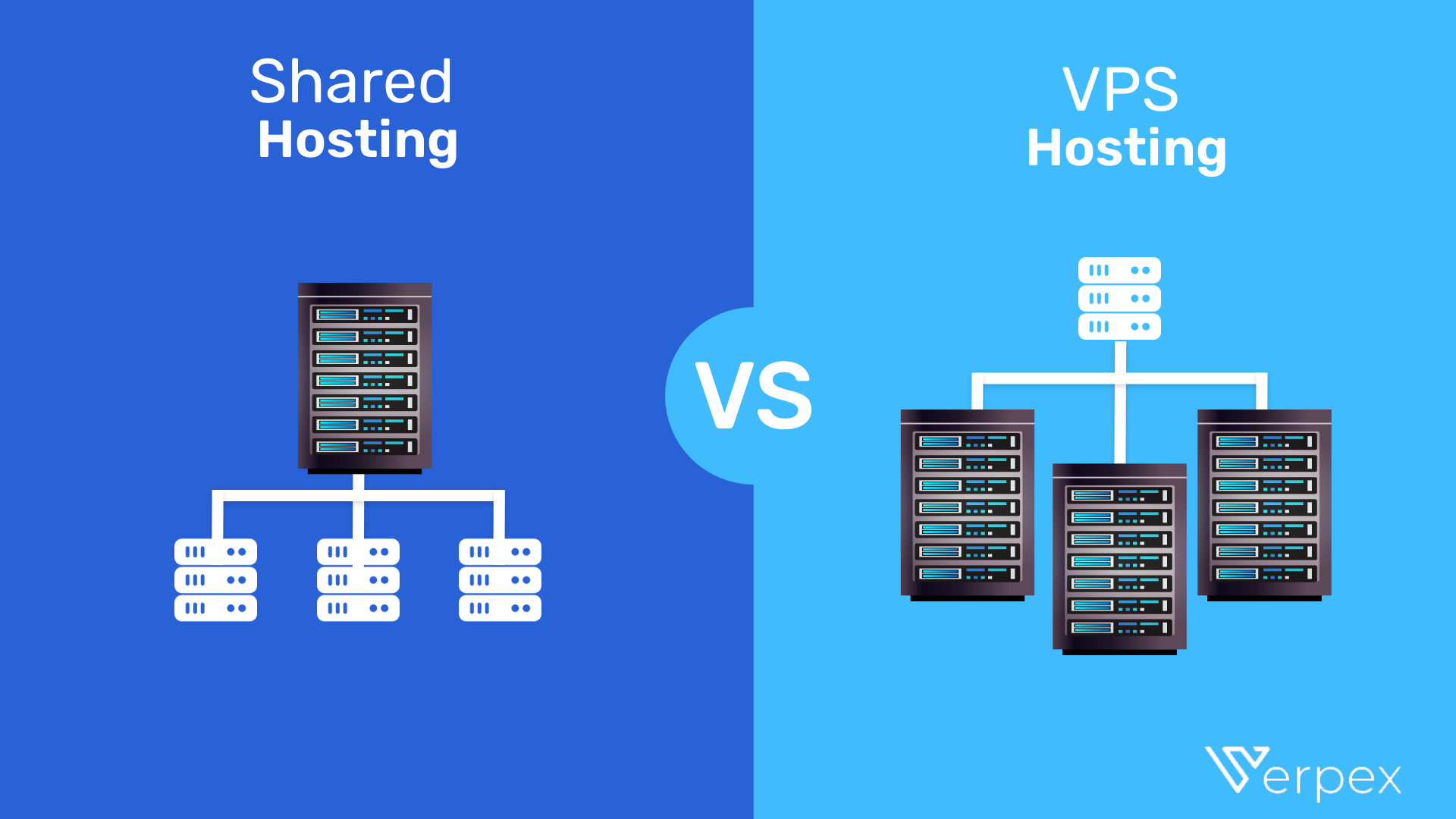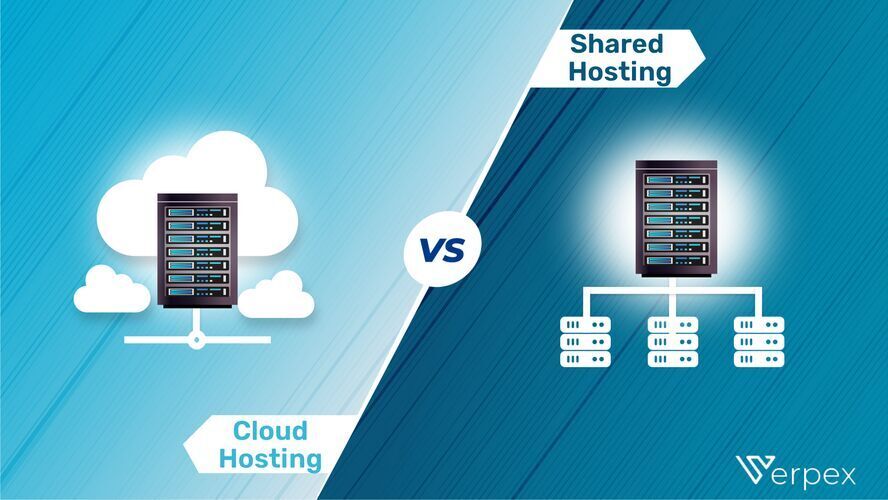Choosing the right hosting for your website is crucial for any new business. The wrong choice can impact your site's speed, cost, and overall performance.
This article examines the pros and cons of shared hosting to help you make an informed decision.
Learn more about shared web hosting on our blog.
Advantages and Disadvantages of Shared Hosting
Advantages
Disadvantages
Advantages of Shared Hosting
Shared hosting is a top choice for new businesses. It's affordable, easy to set up and you can get your site in record time.
Low cost
- Shared hosting is the most affordable option.
- Costs range from $6 - $20 monthly.
- Includes a functional site and eCommerce store.
Simplicity and customization
- Host manages all technical site aspects.
- Glitches and bug fixes are taken care of.
- Many platforms offer easy web-builder tools with extensive customization.
Reliable support
A shared web hosting service often includes 24/7 support, so help is just a call or chat away.
Scalability
- Not limited to one server; scale easily as you grow.
- You can contact your host to upgrade anytime.
- Changes are made instantly.
User-friendly applications
You’ll have access to user-friendly tools like cPanel to manage your website. You don’t need extensive web development skills and every task is made simple for you.
You can host multiple domains
Shared hosting lets you manage multiple websites and emails from one account, allowing for diverse businesses and services.
Disadvantages of Shared Hosting
Despite its popularity, shared hosting has downsides. It's less suited for large businesses or high-traffic sites and offers slightly less security.
System crashes
If shared with resource-heavy sites, your website might crash. You’ll need to choose a reputable host that warns users and prevents performance issues.
Performance
- Shared hosting may lead to performance issues or slowdowns.
- Sharing space with others can affect speed.
- Increased site traffic might also slow performance
Security risks
- Shared servers risk all sites if one is attacked.
- Cyberattacks on one site can endanger others.
- Reduce risk by researching your hosting provider.
Limited installations
Customization is restricted to pre-approved plug-ins. Despite many choices, personal plugin development isn't possible.
File permission risks
If file permissions are set wrong, others on the same server might access your data. You can prevent this by selecting a platform with strong safeguards.
Tips to Make the Most Out of Your Shared Hosting

Maximizing the benefits of shared hosting providers can significantly improve your website's performance and user experience.
Here are some effective strategies for making the most of your shared hosting service.
Optimize your website's performance
For a smoother site on a shared server, optimize performance by compressing images, using caching, and limiting heavy plugins.
Use tools like Google PageSpeed Insights for tailored tips to speed up your site.
Regularly monitor your site
Monitor your website's performance and security closely. Use relevant tools to track uptime and load time.
Regular monitoring allows you to stay on top of matters and keep your site stable.
Take extra security measures
- Enhance your shared hosting security with key measures.
- Update applications and scripts regularly.
- Use strong passwords.
- Implement security plugins.
- Back up your site regularly to prevent data loss.
Use available resources wisely
- Know your shared hosting limits and manage server resources smartly.
- Regularly review usage stats.
- Stay within allotment limits.
- Upgrade plan if your site grows.
Seek reliable customer support
Good customer support can be a lifesaver.
Don't hesitate to contact your hosting provider's support team for help with technical issues, performance optimization, or security concerns
Keep your site clean and organized
Keep your site efficient and secure with regular clean-ups.
- Audit and remove unnecessary files.
- Delete unused plugins and databases.
- Organize for better efficiency and reduced security risks.
Shared Hosting Quality: Understanding Certifications and Standards
Certifications and standards are crucial for ensuring the quality and reliability of shared hosting services.
They represent a provider's dedication to delivering secure and efficient hosting.
Here's a simplified breakdown:
ISO 27001 Certification: Indicates top-notch security. It means the provider follows international standards for protecting sensitive data, essential for businesses hosting crucial information.
PCI DSS Compliance: Vital for e-commerce sites handling credit card transactions. It ensures that your financial data is secure on shared servers.
Uptime Certifications (Tier III & IV): These indicate how often you can expect your website to be up and running. The higher the tier, the less downtime you'll experience
HIPAA Compliance: Necessary for healthcare-related websites. It ensures that patient data is protected with stringent security measures.
GDPR Compliance: Important for services operating in the European Union, ensuring strict data privacy and security.
Shared Hosting Vs. Other Hosting
Shared Hosting Vs. VPS
Consider Virtual Private Server (VPS) hosting for mid-sized sites needing more bandwidth. It's a balance between shared and dedicated hosting, with a reasonable cost.


Shared Hosting Vs. Dedicated Hosting
Dedicated hosting provides a dedicated server for hosting. It suits large enterprises with high bandwidth needs.
While small businesses benefit from a shared hosting environment, growing and complex organizations require dedicated servers.
Shared Hosting Vs. Cloud Hosting
Cloud hosting provides a flexible, pay-as-you-go service using a network for better speed and efficiency. It's pricier than shared hosting but more adaptable.

Future Trends in Shared Hosting: What's Next?

The future of shared hosting is set to be transformed by various exciting technological advancements.
Here's a simplified look at what's on the horizon:
Artificial Intelligence and Machine Learning: Expect smarter servers that can predict and adjust to traffic spikes and security threats in real time.
Green Hosting: More hosting platforms powered by renewable energy and energy-efficient servers, appealing to eco-conscious users.
Enhanced Security Features: Anticipate more advanced encryption, robust firewalls, and real-time monitoring as standard features, along with tools for users to manage their security.
Internet of Things (IoT) Integration: An evolution to support a wide range of IoT applications, offering specialized plans for enhanced data processing and connectivity.
Cloud Technology Blend: The future may blend shared and cloud hosting, combining the cost-effectiveness of shared resources with the scalability and flexibility of the cloud.
Takeaway
Overall, shared hosting has its ups and downs.
First, define your website's goals. It's great for small websites, startups, freelancers, bloggers, and hobbyists due to its low cost and ease of use.
But, for larger sites or those concerned with bandwidth and space, consider other options.
Frequently Asked Questions
Can I customize my shared hosting package?
No, our shared hosting packages come with set bandwidth and storage limits, and you can’t install software on the server. You can however easily upgrade or switch to managed cloud server if you prefer.
Will my data be backed up?
Yes, our shared hosting packages offer daily backups.
How easy is it to switch between packages?
Very Easy. You can move up to a higher tier of shared hosting, or upgrade your overall hosting package very easily. We make it very simple to scale your business.
What extra protections can I add to a shared host site?
Verpex already provides very strong firewall and malware protections, but you can also add your own third party plug-ins to your website depending on the content management system you’ve used to build it.
How many visitors can shared hosting handle?
A standard shared hosting plan usually supports 300 to 800 daily visitors, while a superior provider might handle up to 3,000 daily visitors or roughly 90,000 monthly.

I've been navigating the web hosting waters for years now. As the Chief Editor at Verpex, I team up with some awesome writers to dish out the good stuff on hosting. Got a Master's in Journalism, so I always have an eye out for quality. Whether you're just dipping your toes or you're a seasoned surfer, I'm here to make everything web hosting feel like a breeze
View all posts by Julia Lozanov




















